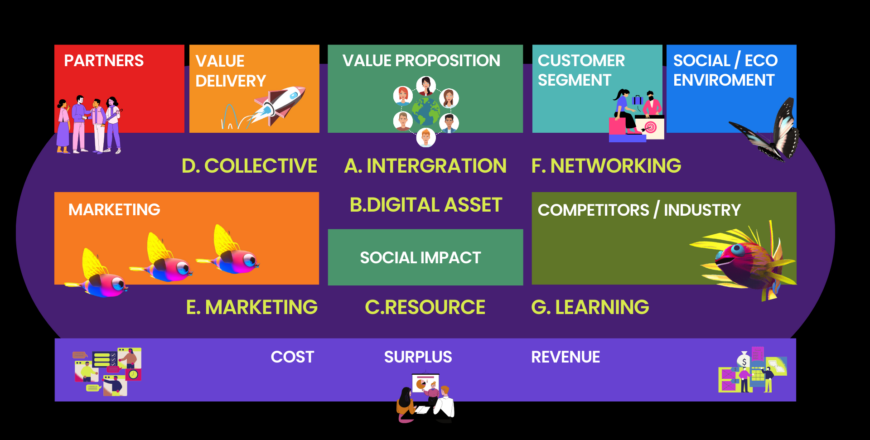Your learning journey involves interactive media, discussion forums, real-time assignments for modeling canvases, and post-course collaboration to refine your startup plan and connect with potential partners.
One case study of an aromathreaphy community
Three reasons that every business can related to digital social entreprenuership.
Four Elements of Business Models
Overview the idea of digital social entreprenuership and how you can expect to learn
Mapping DSE_1:Integration
Mapping DSE-1:Digital Asset
Mapping DSE-2:Collective
Nerworking
Marketing
Learning
Mapping DSE: Resource
